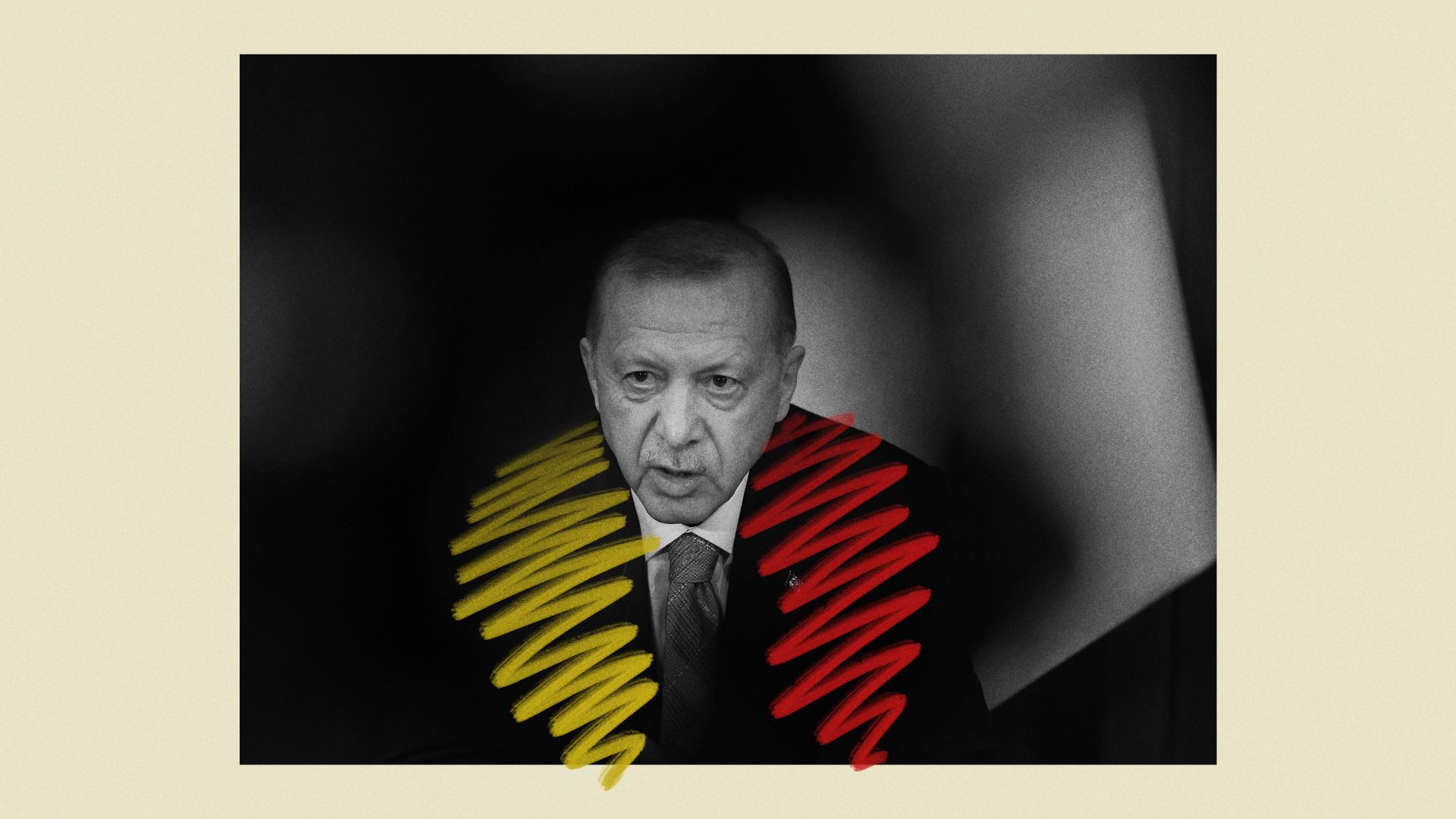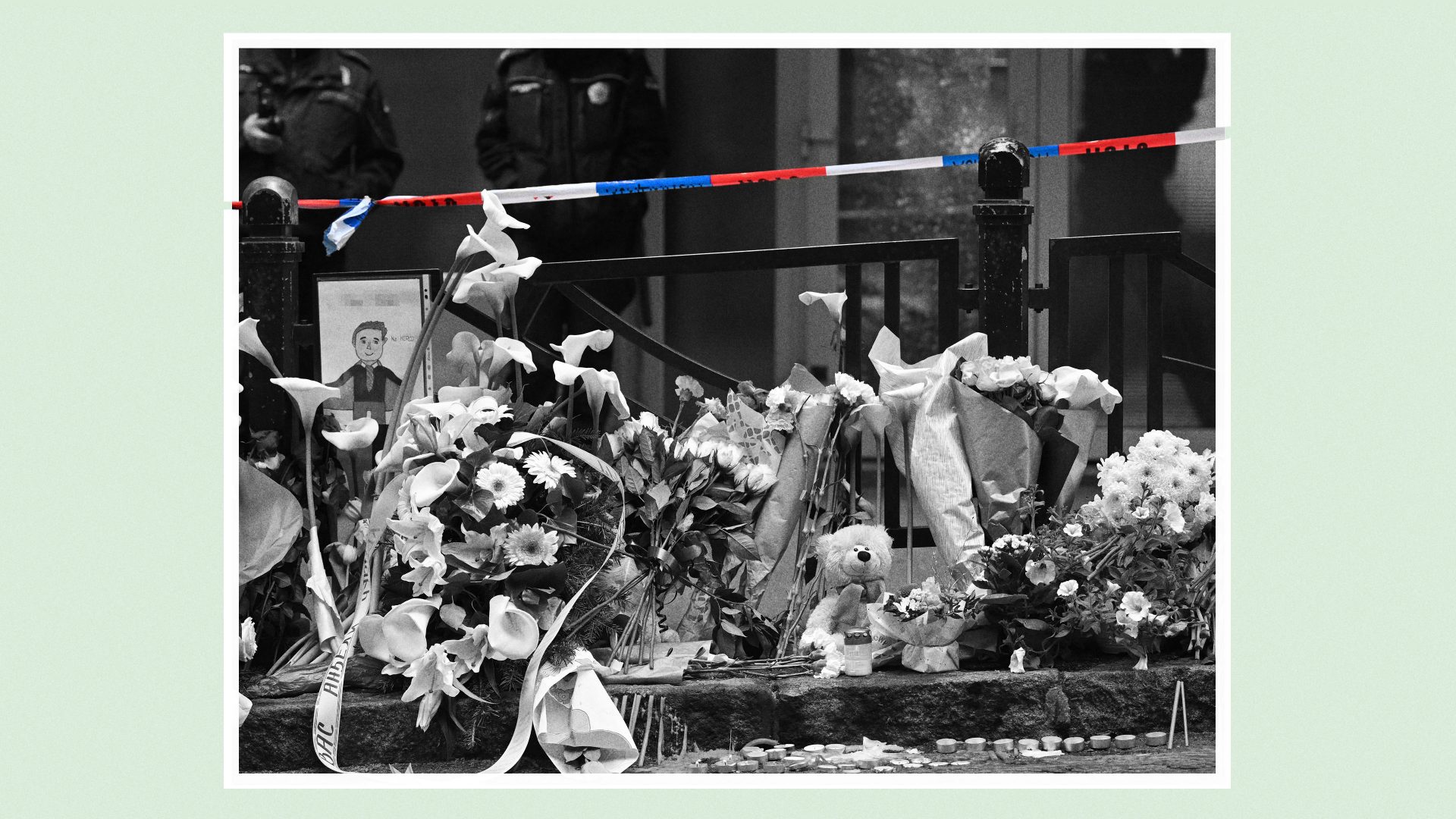All eyes are on Britain this weekend, but once you’ve recovered from Eurovision, it’s worth moving your gaze from Liverpool to Istanbul. To Turkey as a whole, in fact, because Sunday’s presidential election there isn’t just a local event.
In fact, it’s a rather German event, too. From the end of April until earlier this week, expat Turks had the chance to help restore Turkish democracy and rule of law – by replacing Recep Tayyip Erdoğan after 20 years in power. The question is: Will they have seized this chance?
About three million people with Turkish roots live in Germany. Some 1.5 million of them have the right to vote. It is the biggest electorate outside Turkey, and with Erdoğan’s back against the wall, this group could prove crucial.
So far, he has always been able to rely on them: In 2018, at the last presidential election, he gained 53% of the votes overall. In Germany, he got 65%.
One reason is that a majority of the so-called guest workers came from rural, conservative parts of Turkey. Urban society and secular elites never needed to join the Turkish labour force abroad. To them, Erdoğan has long lost his appeal as the moderniser and people see him as the despot he is.
But to their anger, many expats travelling home over the summer tune out the human rights violations and admire how the country’s infrastructure has improved in the last two decades.
Erdoğan’s populist nationalism simply gave many expat Turks the pride and the sense of belonging that German society often denied them. He keeps a firm grip on them, not because he cares so much, but because they are a pawn his regime can make good use of.
So instead of encouraging them to be an integrated part of Germany, he frequently turned them against the country they live in, confirming their thoughts (and experiences) of being unwanted in a basically Nazi society. So voting for him became a middle finger to the German public and media, ever-critical of the president’s absolutist, very much hands-on approach to silence opposing voices.
Another reason for Erdoğan’s appeal in Germany (in some Ruhr region cities he won 75% last time) is that the long arm of the Turkish state reaches deep into immigrant communities. Ditib, for instance, the Turkish office for religious affairs, is linked to mosques and systematically uses its network and Turkish state funding to mobilise conservative voters for the ruling AKP.
German authorities have long stood by and watched how AKP cronies bullied, spied on and threatened Turks and Kurds in Germany, accusing sceptics of being linked to terrorism by the militant Kurdistan Workers’ Party (PKK). After the attempted coup in 2016, things turned particularly nasty, leaving people worried that an inter-Turkish conflict was now happening in our front yards.
Can Dündar fled persecution in Turkey at that time. He used to be editor-in-chief of the left wing Cumhuriyet and had been accused and later found guilty of some trumped-up charges.
I spoke to him shortly after his arrival in Berlin and still remember one of his (many) concerns back then: He couldn’t use public transport so as not to risk running into AKP fans, convinced he was a traitor and criminal. “Why not take a cab?” I asked. “That’s worse,” he shrugged, “every second taxi driver here is AKP”. Can quickly got his own car.
Then, finally, after an exceptionally aggressive campaign in 2017 on German territory for Erdoğan’s referendum, laws were changed: Foreign politicians aren’t allowed to campaign here during the three months leading up to an election.
It is, of course, still happening (under the disguise of Iftar, breaking of the daily fast during Ramadan), but with less noise. At least we don’t see rallies in German football stadiums any more, with President Erdoğan agitating the crowds.
At the last presidential election in 2018, the turnout in Germany was below 50%. This year it should be higher – long queues were seen outside the 16 consulate polling stations. There are hopes that they are people who didn’t bother to vote before because Erdoğan would win anyway. And newly arrived Turks, who left due to an increasing number of restrictions to their liberal way of life.
Political experts still expect more German-Turkish votes for Erdoğan than for his opponent Kemal Kılıçdaroğlu – because voters here aren’t as affected by the dire economic situation in Turkey. To Turks in Istanbul, Izmir and Ankara this pro-Erdoğan support from Germany must feel like the pro-Brexit votes from Costa del Sol felt to you.
I hope, this time, they’ll be positively surprised.




